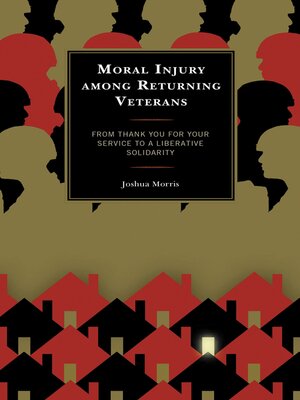Moral Injury among Returning Veterans
ebook ∣ From Thank You for Your Service to a Liberative Solidarity
By Joshua Morris

Sign up to save your library
With an OverDrive account, you can save your favorite libraries for at-a-glance information about availability. Find out more about OverDrive accounts.
Find this title in Libby, the library reading app by OverDrive.



Search for a digital library with this title
Title found at these libraries:
| Library Name | Distance |
|---|---|
| Loading... |
Josh Morris privileges the voices of veterans to argue that returning soldiers need families, friends, and religious communities to listen to their stories with compassion to avoid amplifying the effects of moral injury. When society greets returning soldiers in ways that reinforce cultural norms that frame military service as heroic, rather than acknowledging its ambiguities and harmful effects, it exacerbates moral injury and keeps veterans from resolving inner conflicts and coping effectively with civilian life.
Morris, a military chaplain and veteran who served in Afghanistan, knows these difficulties first hand. Using stories from other veterans, Morris helps us see how cultural assumptions about military service can complicate moral injury and a veteran's return home. Drawing from liberation theologies, ideology critique, and Antonio Gramsci's advocacy for the working class, the book suggests useful perspectives and spiritual care resources for military chaplains, religious leaders, caregivers, and concerned civilians. Morris argues that military chaplains are uniquely positioned to help returning soldiers resist the amplification of existing moral injury. Moving from "thank you for your service" to liberative solidarity can galvanize resistance and make change possible.
Morris, a military chaplain and veteran who served in Afghanistan, knows these difficulties first hand. Using stories from other veterans, Morris helps us see how cultural assumptions about military service can complicate moral injury and a veteran's return home. Drawing from liberation theologies, ideology critique, and Antonio Gramsci's advocacy for the working class, the book suggests useful perspectives and spiritual care resources for military chaplains, religious leaders, caregivers, and concerned civilians. Morris argues that military chaplains are uniquely positioned to help returning soldiers resist the amplification of existing moral injury. Moving from "thank you for your service" to liberative solidarity can galvanize resistance and make change possible.







